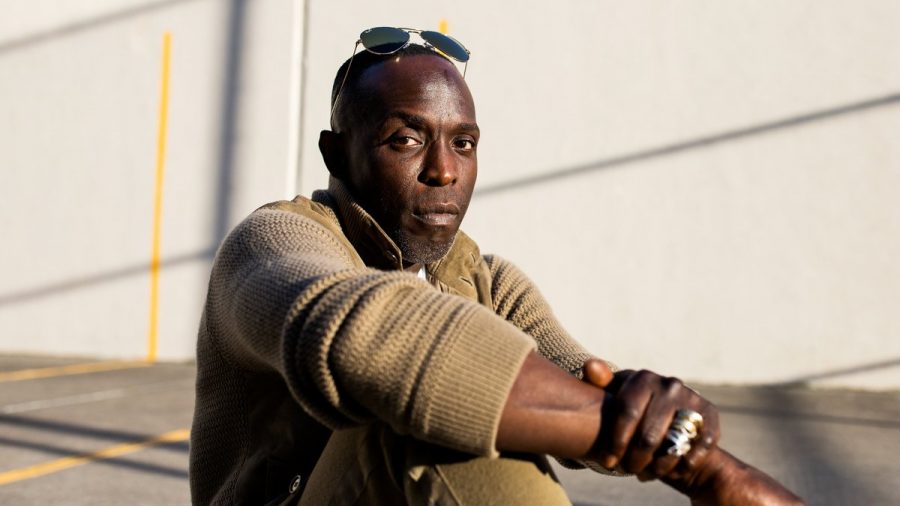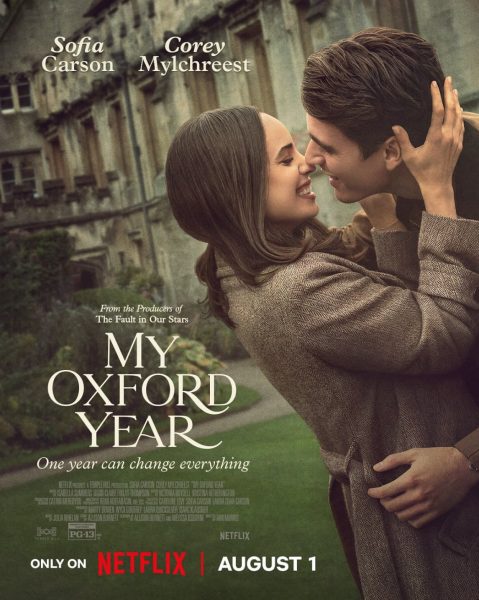Michael K. Williams’ Legacy Lives On
Michael K. Williams’ resilience and expertise paved the way for countless Black creators in the entertainment industry. (Courtesy of Twitter).
During his time on HBO’s “The Wire,” actor Michael K. Williams would have one question for the producers before the start of each season. “Why are we even doing this?” he asked, aiming to cement a sense of meaning behind his craft. Finding the answer to this question defined Williams’ storied career, as he wanted his work to resonate with his audiences, giving them something to relate to and learn from.
Therefore, his death on Sept. 6 left a void in the entertainment industry. Authorities found him in his Williamsburg, Brooklyn apartment at about 2 p.m., according to the NYPD. At the moment, authorities are treating his death as a suspected drug overdose, but nothing has been confirmed. He was 54.
Even though the world lost an immense talent that day, Williams’ legacy is already making an impact. Projects from the early 2000s often reeked with colorism and homophobia, and Williams played a huge role in unearthing these hateful stigmas.
Williams always considered Brooklyn his home, having spent his youth in the Vanderveer Projects of East Flatbush. He never envisioned himself leaving his borough, but he eventually left to enroll in the NYC-based National Black Theatre as a teenager. While Williams did work with pharmaceutical companies for some time, his heart always remained with the arts. He quit his job and stopped by various record labels and dance companies, searching for his big break.
Williams reached stardom through a series of unforeseen circumstances. On his 25th birthday, Williams found himself in a “barroom brawl” on Jamaica Avenue where someone slashed his cheek with a razor blade. The attack resulted in Williams’ signature scar, which stretched across half of his face. His intimidating appearance brought him a lot of attention, as casting directors saw him as a perfect fit for tougher, “thug” roles in music videos.
The late rapper Tupac Shakur discovered Williams after coming across a Polaroid picture of him. “I hated Polaroid ’cause you could never see me, and I had this dark purple sweatshirt on that had the word “gravy” on it,” Williams told The Hollywood Reporter in 2011. “He saw that, he said he could see my scar, and he said, ‘Yo! Go find this dude — this dude looks thugged out enough to play my little brother!’” The rest is history — Williams booked the role in Tupac’s film “Bullet,” which led to guest-star appearances across a multitude of shows such as “Law & Order,” “The Sopranos” and “Deadline.”
In 2002, Williams auditioned for a new HBO series called “The Wire,” a crime drama that explored the relationship between law enforcement and constituents of the city of Baltimore. After a single audition, producers immediately gave him the role of Omar Little, a notorious stick-up man known for his thievery. Omar was only supposed to appear as a minor character in seven episodes, but from the moment that he stepped on screen, he immediately won over fans’ hearts and prompted the showrunners to prolong his presence on the show. Williams shed a new light on a character that would, presumably, be considered the epitome of masculinity, instead bringing a sense of tenderness to the criminal. Williams wanted to keep Omar both vulnerable and volatile, all while maintaining his intelligence and commitment to his “moral code.”
“My only job was to make him — you were gonna feel him,” Williams explained. “You may not like him, you may actually hate him — that is your decision — but one thing my job was to do was I was gonna make damn sure you were gonna feel him.”
Williams’ commitment to representation and defying heteronormative standards is what made Omar Little so special. The character was a feared man walking the streets of Baltimore, but he was so much more than his reputation. He was also openly gay, unashamed of his identity and took pride in his relationships.
To Williams, showcasing Omar’s sexuality was personal. “I saw a lot of homophobia in my community,” Williams explained to the New York Times back in 2019. “Omar definitely helped soften the blow of homophobia in my community, and it opened up a dialogue, definitely.”
After “The Wire’s” conclusion in 2008, Williams went on to portray more gay characters, such as HIV-positive activist Ken Jones in “When We Rise” (2019) and father-figure Montrose Freeman in “Lovecraft Country” (2020). “What was really amazing about Michael K. Williams was that he was unafraid of playing Black gay men in Hollywood,” Emil Wilbekin, a former editor for Vibe magazine, told NBC News. “That was taboo then and still is today. He was willing to play those roles and push back against heteronormativity in Hollywood.”
Nevertheless, Williams still faced his own demons, which took the form of a drug addiction. Overwhelmed by “The Wire’s” successful first season, Williams went into “an emotional tailspin,” resulting in severe substance abuse. However, Williams remained transparent about his struggles, hoping that his story would resonate with others experiencing a similar struggle.
Michael K. Williams’ resilience, expertise and openness paved the way for countless other Black creators in the entertainment industry, showing the world that showcasing vulnerabilities and one’s true self is completely okay. Akiba Solomon, Slate journalist, said, “Without Omar, there is no Tyler the Creator, Young Thug, or Kid Cudi wearing a Kurt Cobain–inspired dress on Saturday Night Live without major repercussions.” Williams is survived by his son, Elijah, and a legacy that will last for years to come.













































































































































































































